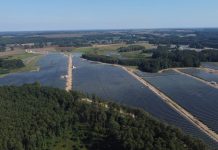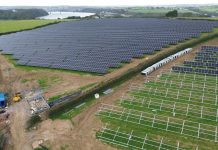The importance of sustainable practices in housing projects is more evident now than ever before. As climate change accelerates and energy costs rise, sustainable housing can reduce environmental impact while providing economic benefits to both developers and residents. The UK has set ambitious targets to achieve net-zero carbon emissions by 2050, and the housing sector plays a crucial role in this endeavour. Let’s explore how developers can prioritise sustainability in their property networks.
Embrace renewable energy sources
Integrating renewable energy sources is a fundamental step towards eco-friendly housing. Solar panels, wind turbines, and geothermal systems can significantly reduce the carbon footprint of new developments.
The UK government has introduced policies that support the installation of renewable energy systems, and developments that include these features often benefit from higher property values and lower operating costs. These systems can also be a strong selling point for environmentally conscious buyers and tenants.
Implement efficient building design
Efficient building design is critical to reducing energy consumption. Developers should focus on passive design strategies that maximise natural light and ventilation, minimising the need for artificial lighting and air conditioning. Utilising high-quality insulation materials and double-glazed windows can further enhance energy efficiency. According to the strategic plan of Homes England, 87% of homes completed in 2023-24 achieved an EPC rating of B or above, highlighting the feasibility of high-efficiency building designs.
Utilise heat networks
Heat networks distribute heat from a central source to multiple buildings, reducing energy waste and improving efficiency. These systems can utilise various heat sources, including combined heat and power plants (CHP), biomass, and even waste heat from industrial processes. By implementing heat networks, developers can ensure consistent and efficient heating, lowering both costs and carbon emissions.
Foster sustainable water management
Sustainable water management involves the effective use and recycling of water within housing developments. This can be achieved through rainwater harvesting systems, greywater recycling, and the installation of water-efficient fixtures.
These measures conserve water and reduce the burden on local supplies and infrastructure. Implementing sustainable water practices is becoming increasingly important as the UK faces more frequent and severe droughts due to climate change.
Conclusion
Prioritising sustainability is essential for meeting the UK’s environmental goals and creating resilient, cost-effective, and attractive housing. From embracing renewable energy to utilising more sustainable practices, developers can lead the way in building a greener future.
The benefits of these practices extend beyond environmental impact, offering economic advantages and improved quality of life for residents. As the demand for sustainable housing grows, developers who prioritise sustainability will be well-positioned to meet market needs and regulatory requirements.



